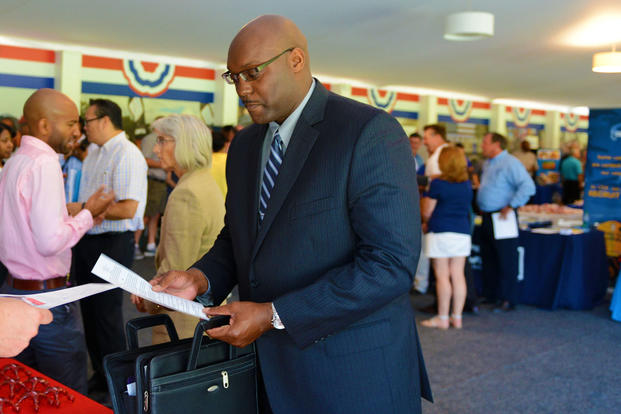Sourcing, recruiting and hiring military veterans is not usually as linear a process as hiring civilian employees. The differences between military skills, culture, experiences and technology often challenge private recruiters. Particularly in cases where recruiters use a dynamic applicant tracking system (ATS), it's challenging to evaluate a candidate's background, character, qualifications and fit in the organization.
For this reason, employers should consider encouraging veteran job applicants to submit a cover letter with their application. In the past, the cover letter always accompanied a resume, submitted in person or electronically. Recently, however, recruiters and hiring managers have been discouraging cover letters, perhaps because of the low quality of the cover letters themselves. A recent article highlights this: "If the job does, in fact, require a cover letter, keep in mind that only 18% of hiring managers rank the cover letter as an important element of the hiring process."
Related: Does your resume pass the 6-second test? Get a FREE assessment.
By encouraging a cover letter, the recruiter (or hiring manager) can learn more qualitative insight about the candidate, such as:
- The candidate can expand on their military experience as listed in the resume. For instance, in cases where the veteran job applicant's work was classified or top secret, they can explain these gaps, or the lack of detail on the resume, in the cover letter.
- Since the resume is traditionally a look backward at career experiences, a cover letter empowers the veteran applicant to articulate their goals and vision going forward. If done correctly, the cover letter is a great place for them to showcase their strengths, outline their value to the potential employer and communicate their vision for their next career. This information is very helpful to a civilian employer who may not understand their career history in the military.
- Did the applicant pursue a certain training in the military? Were they honored and recognized for their skills and character? A cover letter allows the candidate to expand on their military career history and give context to the significance of aspects of their background.
- A cover letter encourages the veteran job applicant to share their values -- personal and professional -- and describe how those values align with the values and goals of their prospective employer. Values are important for military personnel, and clearly and confidently sharing their values gives veterans a sense of control over their career direction after their military service.
- Acknowledging that every job applicant is a human being first, a cover letter encourages the writer to share insights about who they are, not just what they did in the military. Veterans sometimes struggle with this piece because the military does not promote individuality. Instead, the focus is on the mission and collective. Asking a veteran to write a cover letter where they share what's important to them, why they are leaving the military, how they envision their civilian career, etc., can reveal truths and insights not found in the resume or social-media profiles.
Most military personnel transitioning to a civilian career are not taught the nuances or importance of an effective cover letter. This provides an opportunity for employers seeking to source and hire veterans, as you can provide guidance and encouragement for cover letters as part of the application process, showcasing your company as veteran ready.
Related: For the latest veteran jobs postings around the country, visit the Military.com Job Search section.
Find the Right Veteran Job
Whether you want to polish your resume, find veteran job fairs in your area or connect with employers looking to hire veterans, Military.com can help. Subscribe to Military.com to have job postings, guides and advice, and more delivered directly to your inbox.












